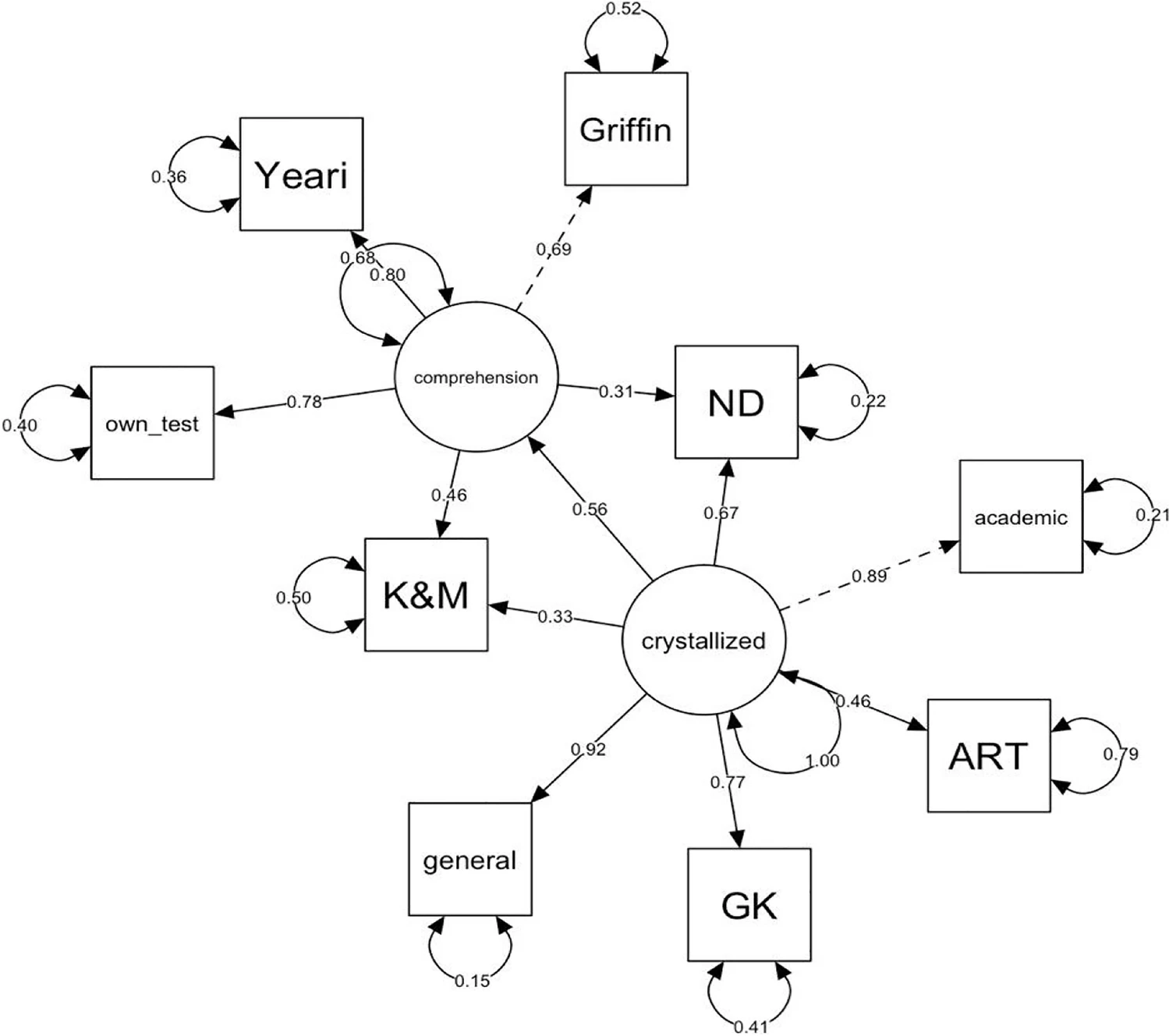“The impious warbler delved into the paltry aperitif and anointed the pumice with ineffable rigmarole.” That’s a sentence with a lot of big words (and I hope it’s never been uttered before), but if you understood that I was referring to a nasty little bird that wiped some booze on a rock, then you may do very well on a new vocabulary test that was released this year!
Each of those ten-dollar words requires some advanced knowledge of vocabulary, and that’s exactly what this new test sought out to assess. Vocabulary tests are often used to assess the IQ of school children, but those kinds of tests may be too simple for adults. In language studies, university students are frequently recruited as a convenience population, yet to date there hasn’t been a vocabulary test validated for native English-speaking university students. Creating such a test would be a great benefit for language researchers looking for an appropriate measure of vocabulary tailored to their participants.
Vocabulary tests can also be good indicators of general knowledge, as test scores are usually highly correlated with performance on IQ tests. This stored knowledge is also referred to as crystallized intelligence. No, not knowledge of crystals, but knowledge that has solidified in memory. We’ll revisit this concept later.
In their recent 2022 paper in the Psychonomic Society journal Behavioral Research Methods, Hanke Vermeiren, Aaron Vandendaele, and Marc Brysbaert (pictured below) describe their quest for a vocabulary test that they (and others) could use in future research.

Brysbaert commented: “It was surprising to see that in the past 50 years no validated, free English vocabulary tests have been published for adults (students). Virtually every month I get emails from researchers looking for such a test. So, we decided to make one ourselves. The enterprise turned out to be more challenging than we foresaw, but the upshot is that to get everything right we developed a battery of some 10 language tests. It includes free English vocabulary tests, reading comprehension tests, a new test for general knowledge, and a new author recognition test.”
It’s quite impressive that their mission to find one vocab test led them to develop an entire battery of tests! Their paper outlines their journey, which spans across five studies. They started with Nation’s Vocabulary Size Test, which is a free resource, but it was originally intended for English-language learners. They wanted to see if this correlated well with another validated test for native English speakers, the Nelson-Denny Vocabulary Test (Form H), but the scores correlated poorly. Therefore, they needed to rework the test to make their own student vocabulary test (available here), which was developed in their second study and further tested in two other studies.
In their analyses, they found that vocab tests are generally good measures of crystallized intelligence. At first, they hypothesized that they could make two separate test of vocabulary—one that caters to general knowledge, and one that targets more specialized knowledge. However, they found a high correlation between these two tests (r = 0.82), suggesting they both measure a common factor: crystallized intelligence. These tests also correlated well with general knowledge, author recognition, and reading comprehension.
The authors further examined other testing instruments and found that reading comprehension tests loaded onto a separate latent variable specific to comprehension. Looking at all of these language tests, the authors found strong support that the tests load onto these two latent variables: crystallized intelligence and reading comprehension. These factors correlated with r = 0.5. The fruit of their labor can be visualized in the structural equation model below.

The student vocabulary test that the authors developed primarily loads onto crystallized intelligence, and it is specifically designed to differentiate between university students. It is the first test of its kind that is validated for native English speakers who attend university, and that will certainly make it useful for language researchers to incorporate into future studies. The authors have made it publicly available (yes, for free), and they encourage all to use it. And we encourage all to read their paper to learn the details of their validation procedures.
Featured Psychonomic Society article
Vermeiren, H., Vandendaele, A., & Brysbaert, M. (2022). Validated tests for language research with university students whose native language is English: Tests of vocabulary, general knowledge, author recognition, and reading comprehension. Behavior Research Methods. https://doi.org/10.3758/s13428-022-01856-x
